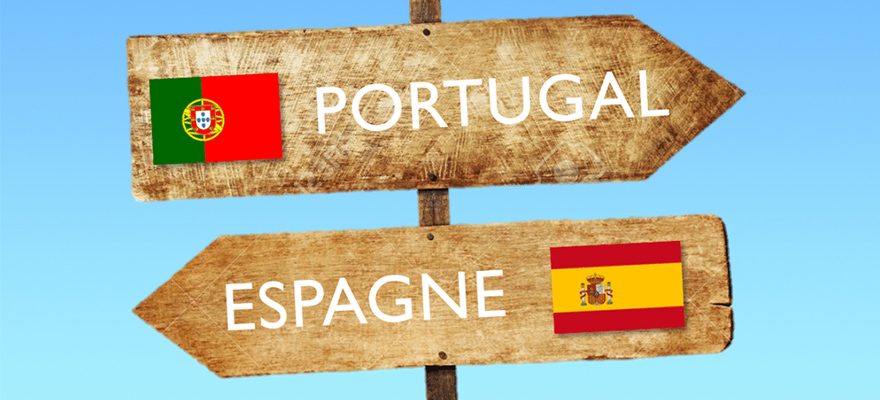

Sébastien Lachaussée & Elisa Martin-Winkel
Coproducing with Spain or Portugal
Spanish and Portuguese directors benefit from a reputation that goes beyond their borders and are regularly selected in international film festivals. During the 2018 Cannes Film Festival, « El Ángel » by Luis Ortega was screened in the « Un Certain Regard » selection and « Colo » by Teresa Villaverde, a Franco-Portuguese film was showcased in the ACID (association of film directors) selection.
The latter is one example among others of the Franco-Portuguese collaboration, indeed in 2017 France and Portugal co-produced not les than 6 films. Franco-Spanish relations are even more flourishing with 12 films co-produced in 2017. Over the last 5 years, Spain and Portugal are even within the first partners of French majority co-productions with 9 films for Portugal and 8 for Spain
We will see here that these collaborations benefit from the long lasting co-production agreements but also from national and regional fundings dedicated to film production.
Long lasting co-production agreements
The coproduction agreement between France and Portugal and France and Spain were respectively signed on October 10th 1980 and March 25th 1988. They both provide that co-production films approved under the terms of the co-production agreement shall be entitled to the full enjoyment of all relevant benefits in force in each country. To be recognized under the agreement a co-production must comply with the provisions of such co-production agreement.
Within the frame of the French-Portuguese co-production agreement, the contribution of the producers shall be between 30 and 70 % of the film budget. However, subject to the consent of the competent authorities the minority co-producer’s contribution may be reduced to 20%. It is also indicated that in principle, a general balance shall be maintained between the co-producers as regards of their respective contributions and the involvement of national artists and technicians.
French-Spanish co-production agreement establishes that the contribution of the producers shall be between 20 and 80 % of the film budget and adds that the minority co-producer shall be required to make an effective technical and artistic contribution. The agreement further details that in principle the contribution of each country shall include no less than two members of staff considered as creators (or only one in the case of the director), one leading actor and one supporting actor and that a general balance shall be maintained between the co-producers’ contributions. Thus, financial co-production are expressly excluded from the benefit of the co-production agreement.
Interesting national supports and tax rebates
Both Spanish (ICAA) and Portuguese (ICA) institutions offer supports for film production.
It can thus be noted that in Spain both a general and selective supports for film production are available. The first one has a significant annual budget of 30 million euros and can support a project within the upper limit of 1.4 million euros and/or 40% of the budget of the film. This is a recoupable aid that comes with a spending obligation of 50% in the country.
The selective aid is non-recoupable and can reach 500 000 € within the maximum limit of 40% of the budget of the film. Its annual budget is 5.3 million euros. This scheme comes with rather strict conditions: it is understood that 10% of the financing must be confirmed, that the film must be in one of the official languages in Spain and that 50% of the shooting must take place in Spain or that 50% of the authors, comedians or talents must be Spanish.
In Portugal, an automatic support is also available with an annual budget of € 665,000 and a maximum of € 350,000 per project. It should be noted that the amount granted is non-recoupable. In recent years this scheme notably supported the French-Portuguese film « Tabu » by Michel Gomes. Moreover the feature fiction production support has an annual budget of 2.4M, within the limits of 600 000 € per project and 80% of the budget of a project. In 2017, it was among others awarded to « Never Ever » co-produced by the French producer Alfama Films Productions. Finally, the ICA also offers support for minority co-production with an annual budget of € 900,000. This aid can support a project up to € 300,000 and 80% of the Portuguese budget of the work.
Both Spain and Portugal also offer tax incentive schemes.
Portugal proposes a tax credit and the allocated amount can reach 20% to 25% of the qualifying expenses, depending on the characteristics of the project, the 25% rate being applicable to films shot in Portuguese. Moreover, it is understood that expenditure in Portugal shall reach at least EUR 1 million.
Spain offers a tax credit for Spanish films up to 20% of the qualifying expenses up to 1 million euros and 18% beyond. Spending in Spain must reach at least 50% of the film budget, the film must have Spanish nationality and be in connection with the Hispanic culture. Moreover, a tax credit for foreign productions is also available with a rate of 20% of the qualifying expenses and up to € 2.5 million and 50% of the budget of the film.
Finally, it should be noted that the Franco-Portuguese co-productions benefit in addition to a specific aid fund set up by the CNC and the ICA, its Portuguese equivalent, that we will detail below.
French-Portuguese co-productions support
The Franco-Portuguese co-production support aims to strengthen the ties between the two countries by granting non-recoupable grants, usually to the minority co-producer, and has been renewed for three years in 2017.
CNC and the ICA jointly decide of the allocation of the grant to a project, after consultation of the commission based in particular on the importance of the project for the cinematographic relations between the countries and the importance of the technical and artistic participation of the minority co-producer.
The amount granted is usually between 10 and 20% of the budget and cannot be higher than 50% and 500 000 euros for feature films. A proportion of qualifying expenses of at least 50% must be spent in French or Portuguese territory, depending on whether the support emanates from the CNC or the ICA.
These past years this fund notably supported « Lo perros » by Marcela Saïd and « Le dernier bain » by David Bonneville up to 90 000 €, « Sertao (les hautes terres) » by Miguel Gomes, « Tous les rêves du monde » by Laurence Ferreira Barbosan and « Esope » by Atiq Rahimi up to 150 000 € or « Technoboss » by Joao Nicolau up to 80 000 €.
Numerous Spanish regional supports
While Portugal has a specific fund, it does not benefit from any regional aid. On the other hand, the Spanish regions offer numerous aids in favour of film production. This is particularly the case in the Basque country, Andalusia, the regions of Valencia and Gallice …
For example, the Institute of Culture of the region of Valencia has an annual budget of 4.5M euros and can provide a non-recoupable up to 500 000 euros and 50% budget or 60% for some projects (first films). It must be entirely spent in the region. The institute of the region of Gallice offers a similar support, up to € 260,000 and 50% of the budget, or 60% for the first films and international co-productions.
It is important to note that Spain and Portugal are both, like France, member of Eurimages. Therefore, a coproduction between France and any of these countries allows the co-producers to apply for Eurimages support for co-productions. This support is selective and refundable. Annual budget is up to 23 M euros and the amount can reach 500 000 per film for fiction. Producers must respect pretty strict conditions: co-productions treaties must me enforced, 50 % of each coproducers financing shall be secured, non European co-producers’ share may not exceed 30% and majority co-producers’ share can not exceed 70 %. Finally, we can highlight that generally coproduction with more than 2 co-producers are favored to benefit from this support.
In view of the above, it appears that collaborations between France and Spain or Portugal benefit from many possibilities of financing and can be highly considered in the development and production of films. Within such international collaborations, it is essential to ensure that the relationships between producers and their partners are effectively framed both for development, production and distribution of the films. To do so and in order to meet the needs of the producers, it is strongly advised to resort to a specialized legal counsel.
SHARE THIS ARTICLE
CONTACT
OUR OFFICES
INFORMATION
sl@avocatl.com
PHONE
+33.1.83.92.11.67
Address
121, boulevard de Sebastopol
75002 Paris
5th floor / Staircase A
Follow us :
Newsletter
Please enter your e-mail :
